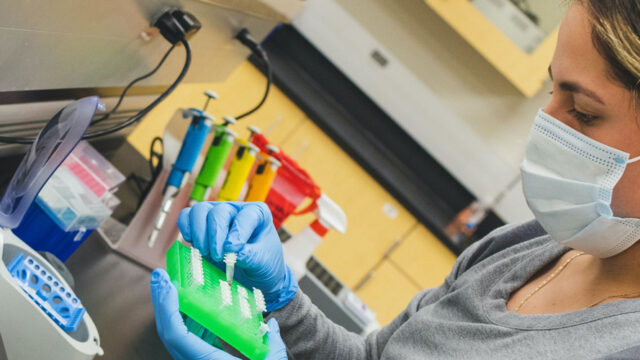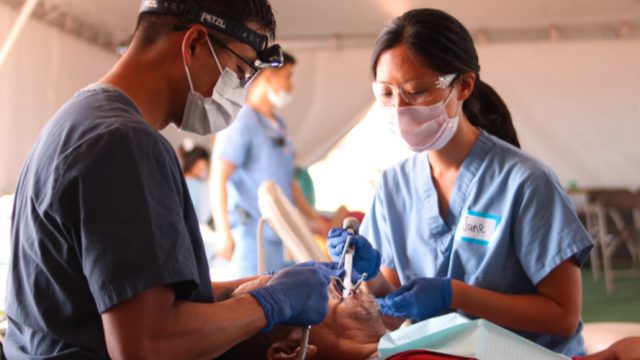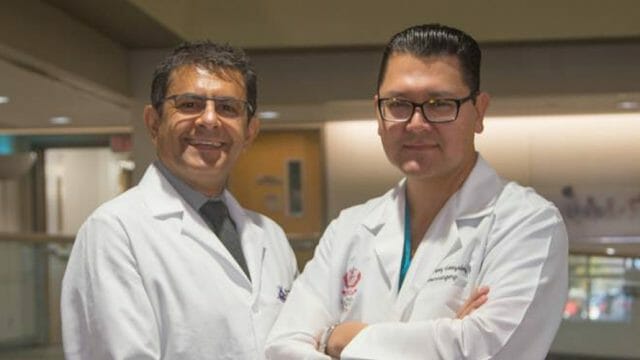Even dim light entering the eye at night will disrupt the daily rhythm and inhibit the secretion of melatonin.

If you want your brand-new automobile to last more than 100,000 miles (160,000 kilometers), you need to fill it with the right kind of fuel. You can learn about the best gasoline to use for your car—as well as accurate information on other maintenance protocols, such as oil changes, rotating the tires, and brake replacements—by consulting the owner’s manual.
Our bodies are far more complex than a car, and they also require care in many more ways than just what food we put into them—as important as that is. And who knows better what’s best for our health than the One who created us, who has shared the instructions, and who empowers us?
Technological Advantages
Because of technological advances of the twentieth and twenty-first centuries, research studies are revealing that sleep is more important to our health than many people previously thought. Let’s explore why adequate sleep is imperative to taking care of our bodies.
Sleep is not simply an “off switch” that causes us to stop what we normally do. Instead, sleep allows the body at the cellular level to complete tasks required to maintain our day-to-day, round-the-clock activity.
I had a friend who worked at Disneyland. He was part of the crew that went in after the park closed each night to get it ready for the next day. In some respects, nighttime was busier than during the day. Maintenance, trash collecting, general cleaning, inspecting rides, weeding—just about everything you would expect to be done to keep the park safe, clean, and operational occurred at night in preparation for the next day.
The body also has processes that occur at night, such as memory consolidation and the clearing of thoughts, the repair of muscles and organs, the repair of immune cells, and much more. All these mechanisms are very carefully orchestrated by a master clock in the brain (called the suprachiasmatic nucleus [SCN]), which makes sure that each process occurs at the right time.
“Since the work of building up the body takes place during the hours of rest, it is essential, especially in youth, that sleep should be regular and abundant.”1
Imagine if my friend decided to start doing his job before the park closed. Then imagine if all his colleagues decided to do the same thing. After a while the park wouldn’t run efficiently or productively. This is exactly what happens in the human body when we’re chronically or even acutely sleep-deprived or when the clock is shifted. Let’s look at the research.
The Master Clock
The timing of everything from when we metabolize food to the best time to sleep and wake is regulated by the master clock (SCN). That master clock takes cues from the environment to make sure that it’s timed correctly during the 24-hour period. Light is one of the major stimuli of the SCN, and light exposure in the evening (after 9:00 p.m.) tends to delay the clock later and later. In fact, even dim light entering the eye will not only disrupt the daily (circadian) rhythm but also inhibit the secretion of melatonin, an essential hormone, from the brain into the bloodstream. The effect is that the body won’t be ready for sleep until later in the night (i.e., it produces insomnia), and the body will not be ready for waking until later in the morning, producing grogginess. Unfortunately, this is exactly what’s happening more and more in modern societies.
The typical scenario is someone who has a 30-to-60-minute commute early in the morning and then gets home at 6:00 p.m. They relax and watch TV or crack open their laptop computer to finish their work or to get on social media into the late hours of the night. This behavior causes circadian rhythm disruption, and sleep doesn’t come until about 11:00 p.m. or midnight.
The typical length of sleep should be at least seven hours for an adult, but because of work, the person rises at 5:30 a.m. and gets only 5.5 hours of sleep—far less than their body needs. Catching up on sleep on the weekend can’t compensate for this; and worse, the sleep-deprived person loses out on the early-morning anchoring sunlight needed to shift back the SCN to the desired place. In addition, the lack of melatonin—a result of late-evening light—is linked to cancer,2 including breast cancer;3 neurological disorders such as Alzheimer’s disease; chronic pain; cardiovascular diseases; and type 2 diabetes.4
Melatonin is a powerful antioxidant, more effective than vitamin E,5 b-carotene,6 vitamin C,7 and even garlic oil.8 Its effects on the human body involve signaling sleep and mopping up dangerous reactive oxygen species from the byproducts of metabolism.
So why not just take a supplement? Supplements are not regulated; therefore, it’s difficult to know whether you’re actually getting what’s on the label. And while a small amount of melatonin at night may be beneficial for some people (usually only one to three milligrams), larger doses often are counterproductive and can cause rebound insomnia.
The best advice is to dim the lights in your house and go to bed soon after 9:00 p.m., avoid screens at night (even E-readers), and expose your eyes to bright light early in the morning. It’s also important to note that this advice isn’t new.
“Make it [a] habit not to sit up after nine o’clock. Every light should be extinguished. This turning night into day is a wretched, health-destroying habit.”9
“How prevalent is the habit of turning day into night, and night into day. Many . . . sleep soundly in the morning, when they should be up with the early singing birds and be stirring when all nature is awake.”10
If you live where nature “gets up late” and there’s no bright light available, consider purchasing a light box (10,000 lux) and sitting at a distance of 11 to 15 inches in front of it for 20 minutes. This type of therapy will help keep your circadian rhythm in synchrony with reality and allow you to get the seven-plus hours of sleep needed every night (for an adult) before you leave for work.
And don’t forget to change the oil!
Benefits of Adequate Sleep
Reduced:
- Stress levels
- Diabetes risk
- Inflammation load
- Alzheimer’s risk
- Errors/accidents
Better:
- Mood/mental health
- Memory
- Immune system
- Skin/healing
Improved:
- Weight management
- Heart health
- Ability to concentrate/focus
- Energy/productivity
1 Ellen G. White, Education (Mountain View, Calif.: Pacific Press Pub. Assn., 1903), p. 205.
2 British Journal of Cancer, March 2004, https://doi.org/10.1038/sj.bjc.6601626.
3 Expert Reviews in Molecular Medicine, February 2009, 11:e5, doi:10.1017/S1462399409000982.
4 Aging and Disease 3, no. 2 (April 2012): 194-225.
5 Journal of Pineal Research 32(2002): 225-230.
6 Free Radical Biology and Medicine 28 (2000): 636-642.
7 Archives of Toxicology 75 (2001): 88-96.
8 Comparative Biochemistry and Physiology, Part A: Molecular and Integrative Physiology 135 (2003): 539-547.
9 Ellen G. White, Daughters of God (Hagerstown, Md.: Review and Herald Pub. Assn., 1998), p. 177.
10 Ellen G. White, Child Guidance (Nashville: Southern Pub. Assn., 1954), p. 111.








